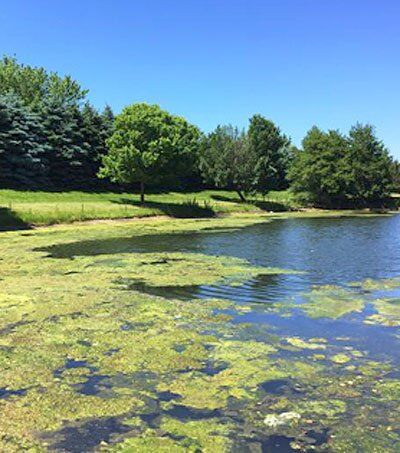NATIONAL POND SERVICE – EDUCATIONAL RESOURCES
What is Biochar?


What is Biochar?
Biochar, which is beginning to see great promise in agriculture, is also showing remarkable benefits in ponds and lakes. The principle reason for using Biochar in your pond or lake water is to reduce phosphorous which is a primary nutrient used by algae and cyanobacteria.
Biochar looks like charcoal but is made by a controlled process called pyrolysis that reduces material contamination and increases carbon storage. The result is a lightweight porous material with a very large surface area. Biochar has the ability to absorb phosphorous from pond or lake water.
After removing biochar from the water it can be applied as an soil amendment for gardens or landscape planting thus reducing the need to add more supplementary fertilizer.
Adding Biochar as a soil amendment may:
- Enhancing soil structure and soil aggregation;
- Increasing water retention;
- Decreasing acidity;
- Reducing nitrous oxide emissions;
- Improving porosity;
- Regulating nitrogen leaching
Biochar not only helps reduce phosphorous in lakes and ponds, thereby helping to mitigate algae and cyanobacteria, but it also has significant agricultural benefits as well, in that it has also been found to be beneficial for composting, since it reduces greenhouse gas emissions and prevents the loss of nutrients in the compost material. It also promotes microbial activity, which in turn accelerates the composting process. Plus, it helps reduce the compost’s ammonia losses, bulk density and odor.
For more information or to explore using Biochar in your pond or lake, please contact us to discuss your specific needs and get answers to your questions.
